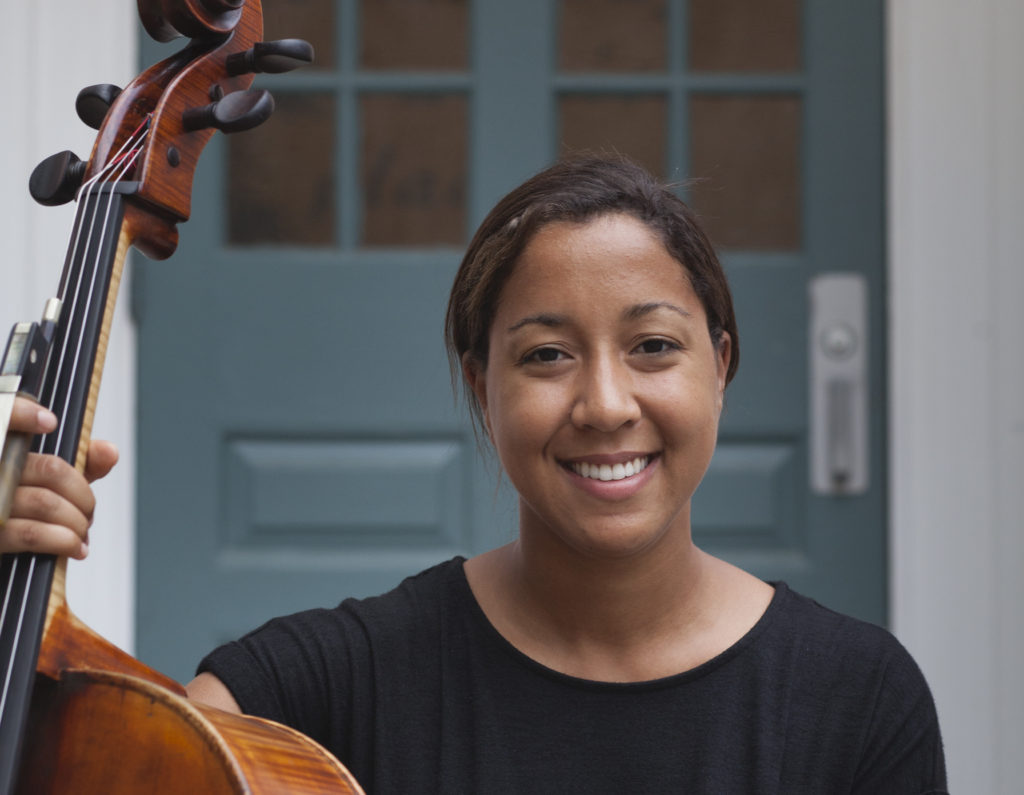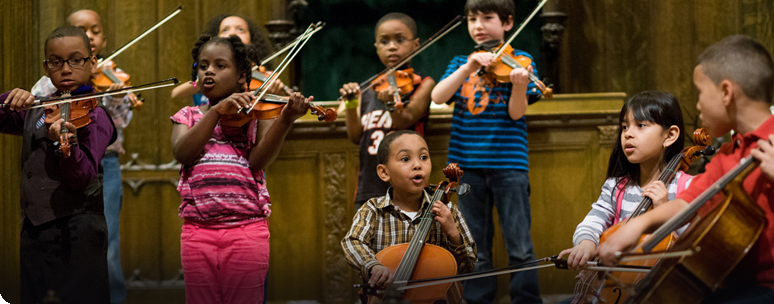Program Notes: This Music Deserves the Noise MusicWorks Collective member Holly Dyer proposed the repertoire featured in this week’s Season Opening concerts. CMW’s Founder & Artistic Director Sebastian Ruth talks with Holly about how she came to this program, what inspired it, and how reflections on identity have been part of her experience in playing this music.
At CMW we have a goal of trying to promote and include more composers of diverse backgrounds that aren’t traditionally in the Western classical tradition and my feeling was just well, how about let’s just do a showcase of all African-American composers because you don’t see that very often…sometimes around Martin Luther King Day or Black History Month but how about just ‘this is how we’re going to start our season.’
This is just a start for me. Why Black Lives Matter in this context is just that I feel like these three pieces are really enjoyable pieces of music that don’t get showcased often enough and mainly just to show that yeah, anyone can write really great music. It shouldn’t have to matter what race you are or what kind of background you have. But these are three composers [whose identities] are just underrepresented in the classical tradition. There’s some jazzy elements throughout all three pieces, especially in the Florence Price piece where you also hear some spiritual tunes. It’s very interesting as I’ve been going through the process of rehearsing this music, you’ll hear very distinct things like, ‘Oh, I don’t usually hear that’ but then you also hear moments that sound like Bach, for instance. In the first movement of the Coleridge-Taylor Perkinson piece, I feel he pays a lot of homage to Bach, and he says that Bach is one of his favorite composers. Also with the Florence Price Five Folksongs in Counterpoint there is a very interesting dichotomy of traditional folk tunes, with very distinguishable melodies, but done in a contrapuntal way, which is something that’s very much like Baroque Western Bach tradition. But she still adds her own kind of a spin with harmonies and voicing and so it’s not like I’m listening to Bach again. It’s okay to have that blend of the Western tradition and other sounds. There’s room for that too. So it has been enlightening for me as I’m considering, in classical music this kind of showcasing African-American composers that there can still be an homage to the Western tradition, a twist and that kind of blend, or you could say integration, is okay and it’s good. It could be another thing to consider when we are programming music by composers that are more representative of the communities that we serve that there could also just be a theme of diversity.
In talking about classical music we tend to call all of that ‘the canon’, but really that’s what composers have always done: draw from multiple influences, some of them reflective of their own cultures, sometimes drawing from others like the French impressionist folks who drew from hearing the pentatonic scales from East Asia. And so that sense of combining cultural voice with lots of different voices and the technique of counterpoint is actually the musical tradition, right? So it’s an element of racism that keeps people, black people, women, out of that mainstream, that makes that music stand out, sit outside of the norm. But in fact all the things you’re describing are what the norm has always been: drawing multiple themes, multiple influences, and not trying to sound like everybody else. Trying to sound like your own voice. Another part of this is that you brought this forward in a moment of exploring these issues of racism and exploring your own identity. I don’t know what, if any, reflections you’d have about how this ties into personal reflection and explorations of blackness, and what this means to you personally.
Well, maybe just one thing. Earlier, I was attempting to articulate that I was fascinated with seeing the diversity coming out in each of these pieces, and as CMW has been addressing this programming and what kind of repertoire we’re having our students play, knowing that I was personally having kind of a divide. I’m racially expressed one way, but I still really like classical music. I come from a mixed background, from parents of two different races and two completely different family backgrounds, ethnic backgrounds and societal backgrounds. And just for me personally, I’ve been thinking more about, then what does that make me? I feel like I can’t really swing one way or the other, you know, and I’ve been recently just trying to embrace that. The mixture is okay because that’s just what I am. I feel like if I stress too much on one side then I neglect the other half of my life, that both sides need to be acknowledged. For me just exploring these pieces and seeing that yeah, Perkinson also really liked Bach, and Florence Price also had influences, for instance I hear a lot of Dvorak in her music as well as other white composers. I guess for me that has been a time to come to peace for me, to be like, yeah this mixture is okay and it’s okay for me to also like classical music. Because in a way couldn’t it also be racism if we think that black people aren’t going to like classical music? And I was also kind of thinking about: why am I defining for my students that they don’t want to play Bach but they would rather play salsa music? Isn’t that racism too? And the opposing side is that we should play all that music but we should play it for its own artistic merits and if we make too much noise about it then it risks looking like tokenism. We should just play it because we think it’s great music and stand behind it. And I brought that question to my student Marieme and she said, “Well it’s the CMW way to do things and talk about it. So why wouldn’t we talk about it?” Both sides of that debate are interesting to me.
Sebastian: Maybe it’s a stronger statement not to point it out, as in ‘this is what we did because it’s the way the world should look’ but we risk not having any message about it. And we are trying to send a message. The difference is that we’re making noise not because we deserve the noise for programming the music, but because this music deserves the noise. . The MusicWorks Collective performs Jessie Montgomery’s Starburst, Coleridge-Taylor Perkinson’s Sinfonietta No. 1, and Five Folksongs in Counterpoint by Florence Price in three concert events this week: Saturday, September 14, 4pm |
